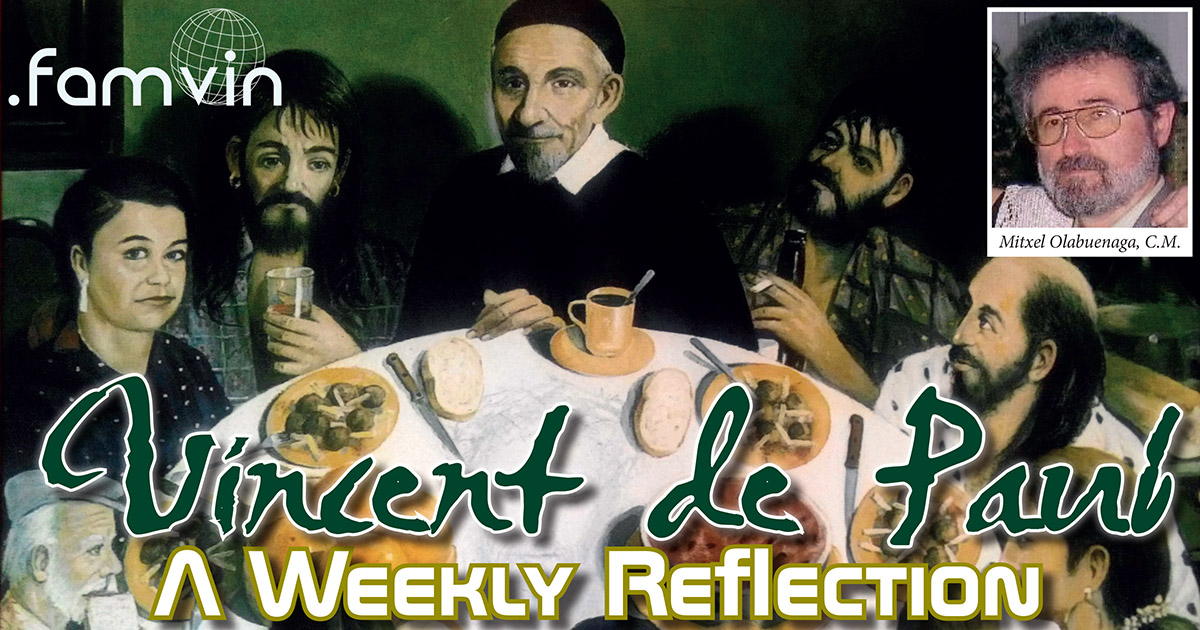“There are among you some Sisters who really love God, who experience great sweetness in prayer, great pleasure in all their spiritual exercises, great consolation in frequenting the sacraments, and experience no inner conflict, because of their love of God, who enables them to accept with joy and submission all that comes to them from His hand. There are others who don’t experience God at all. They never have, they don’t know the meaning of relishing prayer, and they feel like they lack devotion; yet, they don’t stop making their prayer or practicing their Rules and the virtues, and they work hard, although with repugnance. Do they stop loving God? No, certainly not, for they do all that the others do and with a love that’s all the stronger because they feel it less. This is effective love, which continues to be operative even though it’s not apparent.” (CCD IX, conference 41).
Vincent de Paul
Reflection:
- Once again, Mr. Vincent faces the theme of “affective and effective love.” When he does this, it is certainly not for scholarly or intellectual reasons (it was not precisely that one of his weaknesses), but rather for “preventing” or, better “correcting” certain behaviors already observed at that time in his beloved Daughters of the Charity.
- It is surprising the clarity of thought and of exposition that he shows in this paragraph: “There are among you…”, “There are also others…” Oratory effect?… Probably not, but a convition of the importance of the matter for the life of the Daughters of Charity (also, obviously, for others). A subject that is important enough then and now, a frequent object in the matter of confession: “not having a taste in prayer”…
- “There are among you some Sisters who really love God, who experience great sweetness in prayer, great pleasure in all their spiritual exercises, great consolation in frequenting the sacraments, and experience no inner conflict, because of their love of God, who enables them to accept with joy and submission all that comes to them from His hand.” As the poet would say: and they are good!… at least quantitatively.
- “There are others who don’t experience God at all. They never have, they don’t know the meaning of relishing prayer, and they feel like they lack devotion; yet, they don’t stop making their prayer or practicing their Rules and the virtues, and they work hard, although with repugnance.” Are they worse? How many penances have been received for going to confession with this matter! How many scruples have not been created in extremely weak or submissive consciences!
- Conclusion: “Do they stop loving God? No, certainly not, for they do all that the others do and with a love that’s all the stronger because they feel it less. This is effective love, which continues to be operative even though it’s not apparent.” When silence says more than words … it is better to be silent. Point and end.
Questions for dialogue:
- What experience do we have of the dialectic “effective love-affective love”?
- Can we affirm, as in so many other circumstances, that of “in medio consistit virtus” [virtue is in the middle]?
- Without an experience of God, is our work different from that of a pagan?
- Can we, in our communities, value the thought of Mr. Vincent with current criteria?
- Which of these criteria do we use when evaluating community projects?
Mitxel Olabuenaga, C.M.
![]() Mitxel.OlabuenagaOrnes
Mitxel.OlabuenagaOrnes






0 Comments